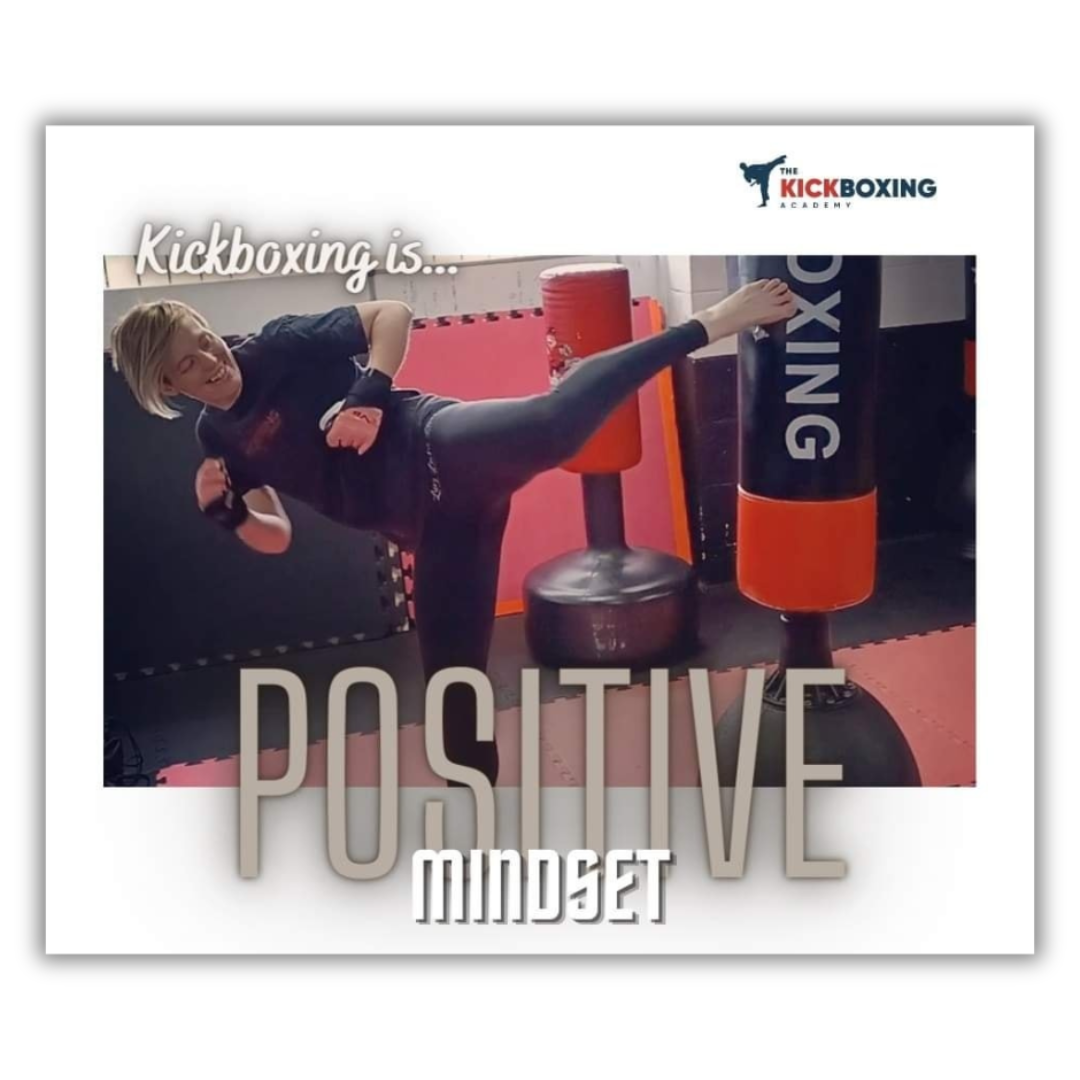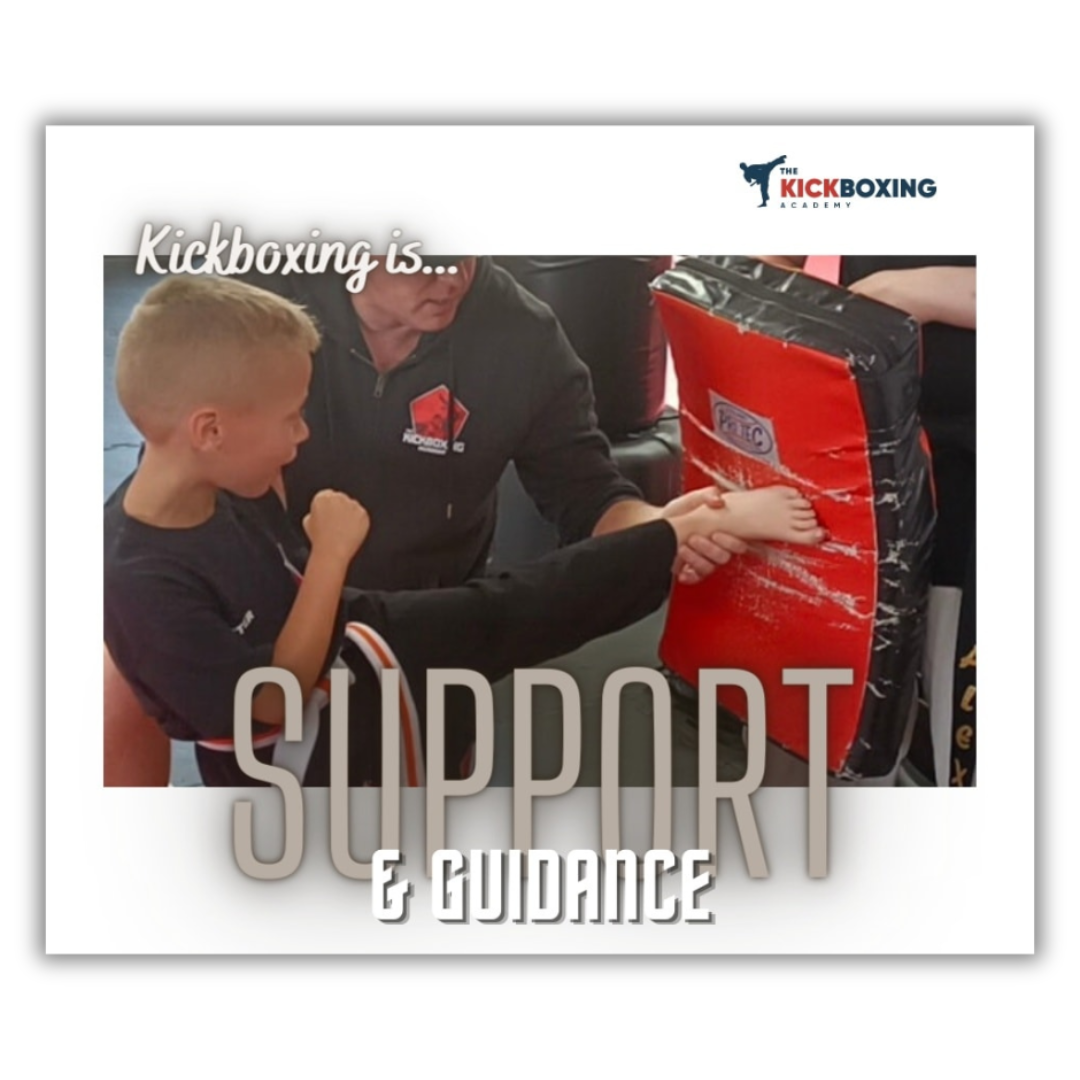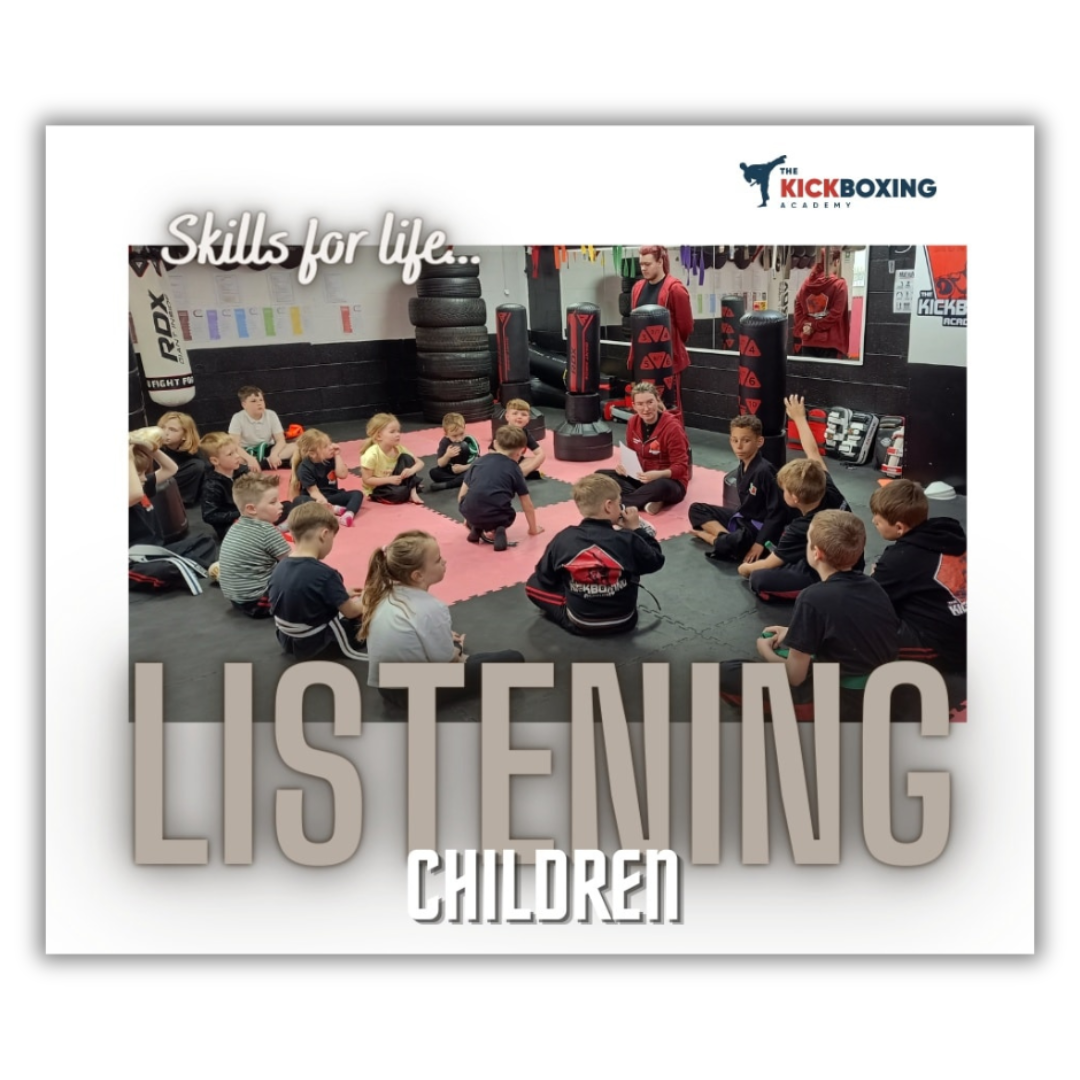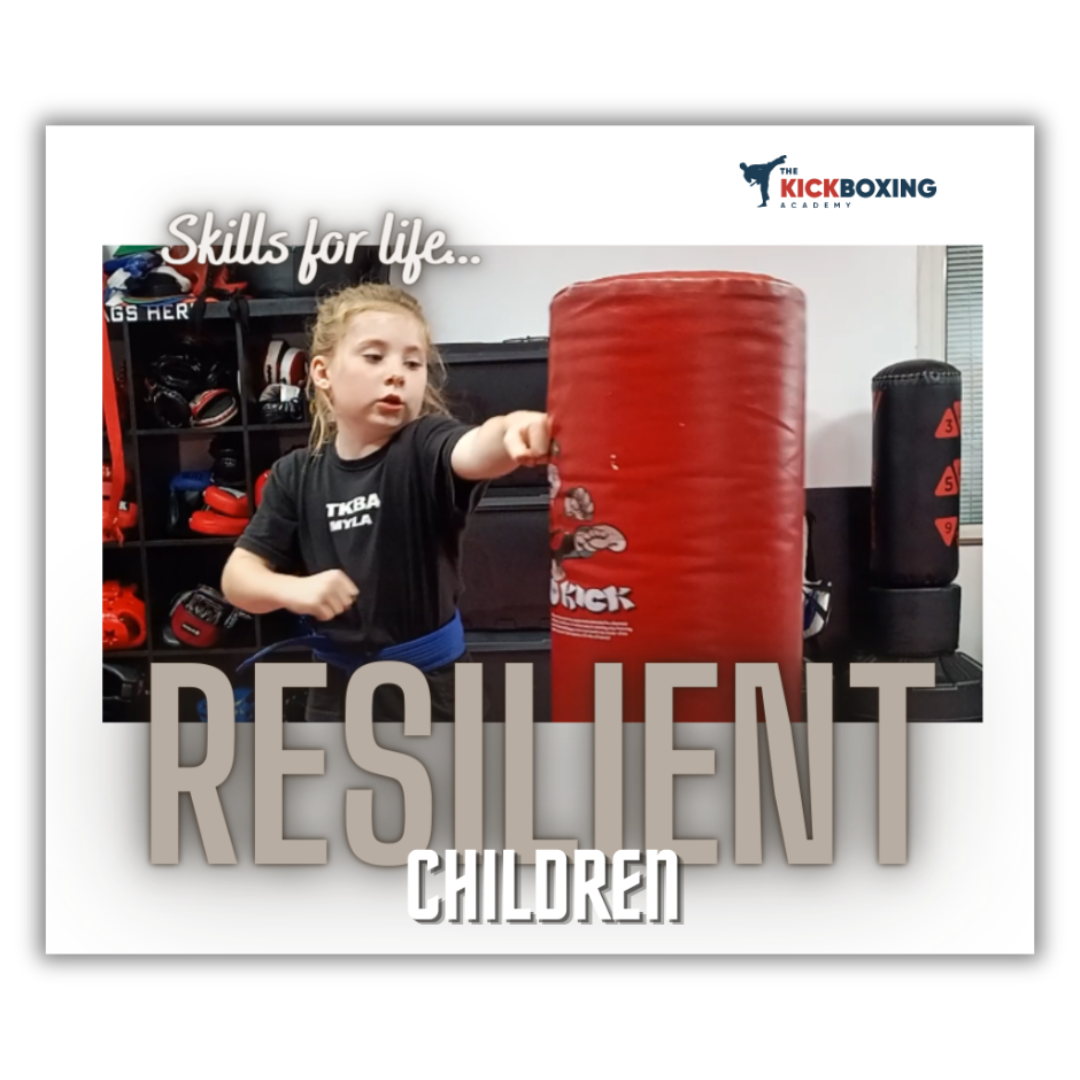How can Kickboxing help you?
How does Kickboxing contribute to creating a positive mindset

1.
Stress Relief:The physical intensity of kickboxing helps release pent-up stress and tension. The act of throwing punches and kicks can be cathartic, allowing you to let go of negative emotions and clear your mind.

2.
Endorphin Release:Exercise triggers the release of endorphins, which are natural mood boosters. These "feel-good" chemicals can help reduce feelings of anxiety and depression, promoting a more positive outlook on life.

3.
Confidence Boost:As you learn and master new kickboxing techniques, your self-confidence naturally grows. This newfound confidence can extend beyond the gym, positively affecting your self-image and interactions with others.

4.
Goal Achievement:Setting and achieving goals in kickboxing, such as mastering a specific move or improving your stamina, can create a sense of accomplishment and satisfaction. These positive experiences translate to a more optimistic mindset.

5.
Mind-Body Connection:Kickboxing requires focus and mindfulness to execute precise movements. Engaging in this type of physical activity promotes a stronger mind-body connection, helping you stay present and grounded in the moment.

6.
Empowerment:Kickboxing teaches you to defend yourself and take control of your body. This sense of empowerment can extend to other areas of your life, reinforcing a positive mindset where you feel capable and in control.

7.
Social Interaction:Joining a kickboxing class or group can provide social interaction and a sense of belonging. Positive interactions with like-minded individuals can uplift your spirits and enhance your overall mindset.

8.
Healthy Lifestyle:Engaging in regular exercise like kickboxing contributes to a healthier lifestyle. When you take care of your physical health, it often leads to improved mental and emotional well-being as well.

9.
Distraction from Negativity:During kickboxing sessions, you're focused on technique, movements, and combinations. This distraction from daily stressors can help break the cycle of negative thinking and improve your mood.

10.
Positive Reinforcement:As you see progress in your kickboxing skills and physical fitness, you'll receive positive reinforcement for your efforts. This positive feedback loop can foster a more optimistic attitude.

How can Kickboxing give you more energy and help you feel energised
 Kickboxing can provide a boost of energy through several mechanisms.
Kickboxing can provide a boost of energy through several mechanisms. First, the intense physical activity involved in kickboxing increases blood circulation and oxygen delivery to your muscles and brain, promoting alertness and energy. Additionally, the release of endorphins during exercise can elevate your mood, reduce stress, and increase feelings of vitality.
 Engaging in regular kickboxing workouts also improves cardiovascular fitness
Engaging in regular kickboxing workouts also improves cardiovascular fitness and overall endurance, which can lead to better energy levels throughout the day. As your body becomes more efficient at utilising oxygen and nutrients, you may find that you have more sustained energy and stamina.
 Kickboxing involves various dynamic movements
Kickboxing involves various dynamic movements that engage multiple muscle groups, leading to improved strength and coordination. Strengthening your muscles and enhancing your coordination can contribute to a sense of physical empowerment, making you feel more energetic and confident.
 Lastly, kickboxing provides a mental break from daily stressors.
Lastly, kickboxing provides a mental break from daily stressors. Focusing on the workout, the movements, and the rhythm of the punches and kicks can divert your attention from fatigue and mental exhaustion, leaving you with a renewed sense of energy and mental clarity.

How can Kickboxing be a great part of your support network
 Qualified Instructors:
Qualified Instructors: Skilled kickboxing instructors provide expert guidance on techniques, form, and safety. Their expertise helps you progress effectively and avoid injury.
 Structured Workouts:
Structured Workouts: Kickboxing classes often follow a structured format, which keeps you engaged and motivated. The class environment encourages you to push yourself and stay consistent.
 Skill Development:
Skill Development: Kickboxing teaches discipline, focus, and perseverance as you work to master different moves and combinations. These skills can translate to improved problem-solving and determination in your daily life.
 Feedback and Corrections:
Feedback and Corrections: Instructors offer feedback to help you refine your techniques. Learning to accept and apply feedback fosters a growth mindset that can be applied beyond the gym.
 Sense of Achievement:
Sense of Achievement: Gradually improving your skills and seeing progress boosts your confidence. This sense of achievement can inspire you to tackle challenges in other aspects of your life.
 Physical Fitness:
Physical Fitness: Regular kickboxing workouts enhance your overall fitness, improving your energy levels and ability to handle daily tasks with ease.
 Stress Relief:
Stress Relief: The stress-relieving benefits of kickboxing help you manage stress off the mats. You'll be better equipped to handle pressure and maintain a clear mind.
 Confidence:
Confidence: The confidence gained from mastering kickboxing moves and techniques extends beyond the gym. It can help you tackle public speaking, social interactions, and professional challenges.
 Self-Defence Knowledge:
Self-Defence Knowledge: Kickboxing equips you with self-defence skills that can enhance your personal safety and increase your confidence in potentially risky situations.
 Healthy Lifestyle:
Healthy Lifestyle: Kickboxing encourages an active lifestyle and can influence your dietary choices, sleep habits, and overall wellness.
 Community Support:
Community Support: If you're part of a kickboxing community or class, you'll find a supportive group that cheers you on. This sense of belonging fosters social connections and a support system.
 Mindfulness and Focus:
Mindfulness and Focus: The mindfulness practiced during kickboxing can help you stay present and focused in daily life, improving productivity and decision-making.
 Resilience:
Resilience: Overcoming challenges in kickboxing builds resilience. This mental strength can be applied when facing adversity outside the gym.
By integrating the lessons learned during kickboxing into your daily life, you can cultivate a well-rounded approach to personal growth, self-improvement, and overall well-being.

How can Kickboxing help your child with their concentration & listening skills
Kickboxing can be a valuable tool for helping kids learn to listen and improve their listening skills in several ways:
 Following Instructions:
Following Instructions: Kickboxing classes involve listening carefully to instructions from instructors. Kids must follow directions for various movements and techniques, which enhances their ability to listen attentively.
 Focus and Concentration:
Focus and Concentration: During kickboxing sessions, kids need to pay close attention to the instructor's cues to execute movements accurately. This promotes focus and concentration, key components of effective listening.
 Sequential Learning:
Sequential Learning: Learning kickboxing involves following a sequence of moves and combinations. Kids must listen and remember the order of these steps, which enhances their memory and attention to detail.
 Active Listening:
Active Listening: Instructors may explain techniques, demonstrate movements, and provide feedback. Kids learn to actively listen, absorbing information and processing it to improve their skills.
 Verbal and Nonverbal Communication:
Verbal and Nonverbal Communication: In kickboxing, instructors use both verbal cues and nonverbal demonstrations to convey information. Kids learn to interpret both forms of communication, which is valuable for understanding messages in various contexts.
 Respect for Authority:
Respect for Authority: Following instructions from kickboxing instructors fosters respect for authority figures. This carries over to other areas of life, such as school, where listening to teachers and following rules is important.
 Problem-Solving:
Problem-Solving: As kids listen to instructions and observe demonstrations, they need to adapt and problem-solve in real-time to execute moves correctly. This skill transfers to solving challenges in other situations.
 Listening in a Group Setting:
Listening in a Group Setting: Kickboxing classes often involve group activities. Kids must listen to classmates' movements and reactions, promoting social listening skills and cooperation.
 Feedback and Corrections:
Feedback and Corrections: Instructors provide feedback to help kids improve their techniques. Listening to constructive criticism and making adjustments enhances their ability to process feedback positively.
 Boosting Self-Esteem:
Boosting Self-Esteem: As kids improve their listening skills and see progress in their kickboxing abilities, their self-esteem and confidence grow, motivating them to engage actively in other learning contexts.
Overall, kickboxing provides an interactive and engaging platform for kids to practice and develop their listening skills, contributing to their cognitive, social, and emotional growth.

How can Kickboxing help both Kids & adults become more resilient
Kickboxing can help both kids and adults become more resilient by fostering physical, mental, and emotional attributes that contribute to resilience:
 Endurance and Stamina:
Endurance and Stamina: Kickboxing workouts challenge your physical limits, helping you build endurance and stamina. This physical resilience translates to being able to handle demanding situations for longer periods.
 Strength and Flexibility:
Strength and Flexibility: Kickboxing builds strength and flexibility, reducing the risk of injuries and enhancing overall physical resilience.
 Pain Tolerance:
Pain Tolerance: Training in kickboxing involves pushing through discomfort. This helps develop a higher pain threshold and a willingness to endure physical challenges.
 Growth Mindset:
Growth Mindset: Kickboxing requires consistent practice to improve skills. This instils a growth mindset, encouraging individuals to view challenges as opportunities for growth rather than setbacks.
 Focus and Concentration:
Focus and Concentration: Kickboxing demands concentration to execute techniques accurately. This practice improves your ability to focus on tasks and handle distractions.
 Adaptability:
Adaptability: In kickboxing, opponents or training partners may have different styles. Learning to adapt to varying situations fosters mental flexibility and adaptability.
 Goal Setting:
Goal Setting: Setting and achieving kickboxing goals teaches the importance of breaking larger challenges into smaller, manageable steps, which is a valuable skill in overcoming obstacles.
 Resilience to Failure:
Resilience to Failure: Learning from mistakes and setbacks in kickboxing cultivates resilience to failure. This translates to handling setbacks in other aspects of life with a more positive attitude.
 Stress Management:
Stress Management: The intense physical activity in kickboxing is a natural stress reliever, helping individuals manage stress and emotions more effectively.
 Self-Regulation:
Self-Regulation: Kickboxing teaches emotional control and self-regulation. Learning to manage emotions during training helps individuals better handle emotional triggers off the mats.
 Confidence Building:
Confidence Building: As you improve your kickboxing skills, your self-confidence grows. This confidence extends to other areas of life, helping you approach challenges with a positive mindset.
 Positive Outlet:
Positive Outlet: Kickboxing provides a healthy outlet for pent-up emotions, reducing the risk of emotional outbursts and promoting emotional well-being.
 Mental Toughness:
Mental Toughness: Overcoming mental barriers during rigorous workouts builds mental toughness, which enables individuals to stay resilient in the face of adversity.
By participating in kickboxing, individuals learn to navigate physical challenges, develop a growth-oriented mindset, and regulate emotions effectively. These qualities collectively contribute to greater resilience, helping both kids and adults face life's challenges with strength and determination.

How can Kickboxing help kids and adults with goal setting and achieving more
Kickboxing can be a powerful tool for helping both kids and adults with goal setting and achieving more by instilling discipline, focus, and a growth mindset. Here's how:
 Clarity:
Clarity: Kickboxing encourages individuals to set clear and specific goals, such as mastering a specific technique, increasing stamina, or participating in a competition. Clearly defined goals provide direction and motivation.
 Short-Term and Long-Term Goals:
Short-Term and Long-Term Goals: Kickboxing teaches the importance of setting both short-term and long-term goals. Short-term goals keep you focused on immediate progress, while long-term goals provide a bigger picture to work towards.
 Measurability:
Measurability: Goals in kickboxing can be easily measured, such as the number of rounds completed, the speed of punches, or the accuracy of kicks. Measurable goals allow for tracking progress and celebrating achievements.
 Challenging Yet Attainable:
Challenging Yet Attainable: Kickboxing encourages setting goals that are challenging but attainable. This balance promotes a sense of achievement while preventing frustration from setting unrealistic expectations.
 Discipline and Consistency:
Discipline and Consistency: Regular kickboxing practice requires discipline and consistency. Transferring this dedication to other areas of life helps individuals achieve goals through sustained effort.
 Focus and Determination:
Focus and Determination: Kickboxing demands focused attention to technique, form, and execution. This focus carries over to other tasks, helping individuals maintain determination to achieve their goals.
 Overcoming Challenges:
Overcoming Challenges: Kickboxing teaches individuals to overcome physical and mental challenges. This resilience translates to facing obstacles in goal pursuit with a positive attitude.

















